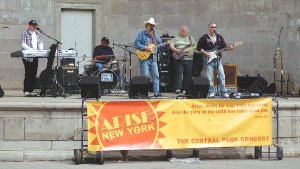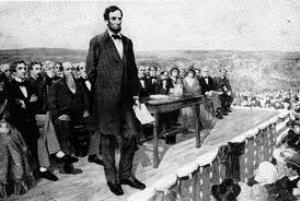 "The grass withers, the flower fades, but the
"The grass withers, the flower fades, but the
word of our God stands forever." (Isaiah 40:8, NKJV)
Let us turn to 2nd Kings 12 to look at a passage that describes a time near the end of the Kingdom of Judah’s history. The story speaks first of Judah’s failure to invest in what was most important, second of a rebuke from the Lord through King Joash regarding that failure, and finally of Judah’s active investment with right priorities. Reading from verse one,
“In the seventh year of Jehu, Joash
became king, and he reigned in Jerusalem
Jerusalem forty years. His mother’s name
was Zibiah; she was from Beersheba. Joash
did what was right in the eyes of the LORD
all the years Jehoiada the priest instructed
him.” (NIV)
This description of Joash as “doing what was right in the eyes of the Lord” stands in sharp contrast to the behavior of many of Judah’s other kings, and certainly with what the kings of Israel were doing at the time. Nevertheless, we must note the caveat, “He did what was right… The high places, however, were not removed; the people continued to offer sacrifices and burn incense there.” Joash was a good king, but not a completely faithful one.
Here is Joash, a young, inexperienced ruler beginning his reign at the tender age of seven. Yet he had the courage to say to the priests at the temple in Jerusalem,
What struck me when I read this passage were the similarities between the behavior of Judah, and the conduct of many believers in our nation today. Christians are busy storing up treasure, and trying to do the right thing as far as they understand. They do this in part because they hold dear the very values that so enrage some newspaper columnists: family, traditional marriage, children, and so on. Nevertheless, one of the key dynamics of the Kingdom of Heaven is that it is not enough just to do what is right! It is not enough just to store up treasure. We must actively invest what we store up in order to advance the purposes of the Kingdom of Heaven!
The two commands the king gave were, “Collect the money,” and then, “Repair the damage.” Damage has been done to our nation, to its foundational understandings, to its values, and to its culture, especially over these last several decades. But damage has also been done to people’s understanding of the Biblical nature of the church of Jesus Christ. God is restoring His church, with emphasis on the fact that it is His church, not ours, just as the Biblical temple belonged to God, not to Israel or Judah. Rather than have us pile up riches, I believe that the Lord is calling us to invest all that we have and are to build His kingdom, His church.
A believer may think in his or her mind, “What little thing can I give, what little thing can I do? What difference is it going to make?” But in God’s kingdom, the one who takes and invests the treasures and gifts entrusted to him or her always has a return. Granted, that return may not come right away, or even come in that person’s lifetime, but there is a return! There is never a failure of that return in God’s good time. John Phillips could have decided that there was nothing he could do in response to this recent series of articles attacking evangelicals. Instead, as a gifted writer, he prayerfully prepared a response, which was published in The Washington Post, and is now being talked about all over the country.
 Arise New York
Arise New York
at the Central Park Bandshell
In (my wife) Pilar’s and my first few years of trying to find our way into public evangelism, it was striking how many thousands of dollars that effort cost the two of us. When we added up the parking tickets, the medical bills, the breakdown of cars that never break down except the day before an outreach, the flooding of our basement on the opening night of our first New York City campaign, and the vandalism of one of our cars during the second day, we were thinking to ourselves, “This is getting too expensive!” But there was a verse from a song that the Lord reminded me of repeatedly, “And all thou spendest, Jesus will repay!”
Now, Pilar and I do not normally get parking tickets, except around the time of evangelistic campaigns! And, thank God, the parking ticket phase seems to have ended. But with last summer’s Central Park outreach, someone crashed into one of our cars a few days before the event, and someone else hit our second car as we entered our driveway on the way home from the event. Again I was thinking, “Lord, this is getting too expensive!” We can take that view; it is both easy and understandable to do so.
Yes, there is a cost to investing in the Kingdom of Heaven, and that cost is sharpest when we are stepping onto unfamiliar territory, spiritual territory that is new to us.
There is an excellent historical illustration of what investment in unconquered territory costs. In the 1810’s, the American Board of Commissioners of Foreign Missions, the first American missions board, invested large amounts of money in missions in the Middle East. In God’s good time, young lives were sown into Middle Eastern soil in faithful obedience to the call of Heaven. Prayers were prayed on the ground in Lebanon, in Smyrna, in Egypt, in the region that would later become Palestine and Israel, and elsewhere. Prayers were sown into rock hard soil, prayers that had not been prayed in those parts of the world for many hundreds of years.
After about ten or fifteen years of those efforts, however, about half to two-thirds of the young missionaries from Middlebury, Yale, and other colleges had died on the field. The Commissioners decided that this was too great a cost, and they pulled up roots in the Middle East! Though their action may have seemed reasonable under the circumstances, it nevertheless represented a failure of vision. Breaking into strongly held enemy territory is always costly, but our nation may now be paying the much higher price of failure to reach the Middle East two hundred years ago. Only God knows what the long-term fruit will be of those seemingly futile efforts of the 1810’s and 20’s, that “wasted” investment of New England’s treasure.
Considering again this passage from 2nd Kings, the priests failed strikingly to invest funds gathered because they did not have the vision for the return that investment in God’s temple would bring. How often we see the battle and draw back! We say, “It’s too much,” or, “It’s too costly.” When you stretch the boundaries of the Kingdom of Heaven, there is going to be a fight, and a cost. But it is worth all the cost!
In this situation, we see King Joash giving a command to the priests to collect the money and then repair the temple, yet the priests ignored that command to repair the temple for about sixteen years! “Therefore King Joash summoned Jehoiada the priest and the other priests and asked them, ‘Why aren’t you repairing the damage done to the temple?'” Now Jehoida was a man of God! He was the very instructor who had made Joash the godly king that he was. And yet, the still very young Joash had to rebuke his personal instructor, Jehoida, saying to him,
Reading this story recently, I saw something that I had never noticed before. This passage is a powerful illustration of the way God works in His church, in the Body of Christ! The priests had a critical role and function, but they were not carpenters, they were not builders. They were not workmen! As long as we allow only one particular type of ministerial function and vision in the church, there are whole areas of need and opportunity that remain unseen, and unmet.
In our generation, God is restoring all of the ministries in His church, all of the gifts! When someone really has the heart of a pastor, and there are people who do, that person is a pastor because he cares for God’s flock, God’s people. It is not the title of pastor that I am concerned with here. Many Christians put too much emphasis on titles! In the Body of Christ, a person’s calling and function are much more than a title. Genuine pastors have a heart for the believers, they have a heart for the welfare of God’s people, and they are watchmen! There are people like this, but if that is the only vision you have in the church, other critical elements get lost—because God never gives all His gifts, or the entire ministry, to one person—or even one group of people.
Other elements get lost, including elements of teaching, elements of evangelism, elements of prophecy, and elements of the gifts of the Spirit. Part of the reason for the failure in 2nd Kings was because the priests were keeping all the treasure in their own hands! As Joash wisely perceived, part of the solution was to get the money out of the hands of the priests, and into the hands of the workmen. What a beautiful illustration of what Ephesians 4 is describing! I never noticed some of this before, but I have now—in part because I just finished leading a series of Bible studies at Manhattan Grace Tabernacle. Those studies focused on God’s calling of every believer to be a disciple, and on His calling to all of us to take our places in the Body of Christ. This is one of the great needs as well as opportunities in our generation!
Verse eleven of Ephesians 4 reads, “It was he who gave some to be apostles….” Being an apostle is not a title, it is not a self-chosen position; it is something the Lord puts into a life. He makes a person into an apostle. I would seriously doubt that anyone walked up to Paul and said, “Apostle Paul…,” it is not even in the Bible! Believers in that generation would have said, “Brother Paul…,” or if they were unbelievers, they might have added a few choice epithets to Paul’s name.
Being an apostle was not a title for Paul, it was who and what he was! 1 Corinthians 1:1 states, “Paul,called to be an apostle of Christ Jesus by the will of God….” Jesus Christ sent him to preach the Gospel and to build the church, and that is what the Greek word apostolos (ap-os’-tol-os) means: a delegate; specially, an ambassador of the Gospel. An ambassador is literally one who is sent!
Ephesians 4 continues, “It was he who gave some to be apostles, some to be prophets, some to be evangelists, and some to be pastors and teachers.” Please note that what you do not see here is, “Prophet of the First Degree,” or “Senior Chief Evangelist,” or all the other titles that the world loves to bestow. In Jesus’ own words from Luke 22:25-27: “The kings of the Gentiles lord it over them; and those who exercise authority over them call themselves Benefactors. But you are not to be like that. Instead, the greatest among you should be like the youngest, and the one who rules like the one who serves.” Not only are we called to serve, but note that every ministry in the list is plural, not singular! God is not looking for one-man bands. Paul himself always labored with at least one other brother, and Jesus sent His disciples out two by two.
A believer is a prophet because that is what he or she is. It is not a title; it is what the person is in the Lord! Jeremiah was called, “Jeremiah.” That was his name! Being a prophet was his life-long function. And He, the Lord, gave “some to be prophets, some to be evangelists, and some to be pastors and teachers.” I am pointing out these things because, when living functions in the church are changed into stale titles, the church has already begun to be transformed from a living organism into an organization. And when you turn the church into an organization, you have stepped away from the direct working and daily inspiration of the Holy Spirit. You have begun to enshrine living faith as a display piece in a museum, something to be honored and remembered, rather than experienced first-hand. As John Wesley stated on his deathbed, he was afraid that his fellow “methodists” would take a remarkable work of God, and turn it into another denomination. Methodism was born in revival and the powerful moving of the Spirit of God on people from many denominations. But now, a lower case m was about to became a capital M, and the power of an entire movement began to fade.
All of the ministries described in Ephesians 4 are essential parts of the life of the Biblical church. They all have their place in the Body of Christ, yet none of them encompasses the whole work. None of them individually represents the fullness of the ministry of the church! In fact, Paul goes on to say what the chief purpose of these five-fold ministries is: “to prepare God’s people for works of service.” The work of these ministries is to deliver the counsel, the whole counsel of God, into the lives of the members of the Body, so that the members may do their work. That is what the Bible says, “to prepare God’s people for works of service.” That word service is the same word as ministry, because that is what real ministry is! To be a minister in the Biblical church is to be a servant, and all the members of the Body of Christ are called to serve, each in the capacities the Lord has given them. As Ephesians 3:10-11 states, “His intent was that now, through the church, the manifold wisdom of God should be made known to the rulers and authorities in the heavenly realms, according to his eternal purpose which he accomplished in Christ Jesus our Lord.”

In much of traditional Christianity, you find the separation, “Here are the ministers, and here are the people.” It is not so different from the old children’s rhyme, “Here is the church, and here is the steeple. Open your hands and see all the people.” Biblically, the church is the people. It is a spiritual building, not a physical one. In the Biblical church, the role of God’s ministers is to prepare God’s people to minister, and to take their places as functioning members in the Body of Christ.
God is so marvelous! We were talking about whales this morning in our car. You could live your whole life without ever thinking about whales, but God obviously thought a lot about whales. And God thought a lot about those little crustaceans in the middle of the ocean whose beauty so puzzled Charles Darwin: “Many of these creatures so low in the scale of nature are most exquisite in their forms and rich colours. It creates a feeling of wonder that so much beauty should be apparently created for such little purpose.” (from Darwin’s Beagle Diary, quoted in Randall Keynes, Darwin, His Daughter, and Human Evolution, 26)
Clearly, God thinks a lot about many things, including what we call little things! And He does think about the place of every member in His Body. There is a place for each of us. There are skills that some of us have that God is not going to give to someone else. We either invest them, or they will not be invested—and the church will be the poorer because of our failure to invest. But there is something else that is striking in 2nd Kings 12, and this was the part I found most heartbreaking. As I was reading this passage, I heard a kind of a drum roll of horse’s hoofs in the distance. The clock of history was ticking toward Judah’s conquest and going away into exile. Yet seventeen years were lost for the temple to be repaired and for Israel to be the nation, and example to the nations, that God wanted her to be. You cannot put a price on that loss, that loss was real!
Anyone of us here today who is honest has to say that we have lost time. We have in some measure or another failed to invest at the level of the spiritual battle surrounding us today. What these editorial attacks on believers make abundantly clear is that the devil desires to tear apart everything that Christians hold precious in this country. It can happen! Before the meeting this morning, I was praying about a message that I recently heard on James Dobson’s “Focus on the Family.” A Christian from Germany who grew up during the years of the Hitler Youth and the Second World War was saying to Americans, “Don’t think it cannot happen here!” He pointed directly at the failure in the 1930’s of most German Christians to see the battle for what it was. Most dismissed the Nazis as crazy people who would never amount to anything. Believers failed to respond to the situation; they failed to stand up in the face of what was happening. Therefore, the few who did stand up were easily picked off and locked away. Believers failed to respond sufficiently to the challenge of the rising flood of immorality which poured into Germany during the 1920’s and 30’s.
Where were the people of God? Sinners are not the ones who are going to rescue the nation. It is the saints, and the saints cannot rescue the land by piling up the money and storing it in chests! The funds—and I am not just speaking of physical funds because it really comes down to lives—our lives and our funds must be invested at the front of the battle. The reality of our generation is that the hoof beats of war, famine, flood, persecution, extremism, and destruction are heard in the distance. I will not sit here and try to put a definite time on the matter, especially since the Bible warns us that no man “knows the day or the hour.”
We cannot know the times exactly, only the Father does! But we can have our ears attuned to know that as Jesus said, “The time is coming when no man will be able to work.” The time may come when we will no longer have religious liberty, when we will not be able to broadcast, when we will be forbidden to publish, and even when we will no longer be able to stand up to preach in the public square. In the 1970’s, on any Sunday afternoon that we wanted to, we could go to Central Park, or to Fort Tryon Park, or wherever we wanted to preach and have people respond to the Gospel. You cannot do that anymore! You have to get a permit—and they can say no to that permit! Who knows how much farther it will go?
We need to invest our lives and whatever treasure we have while we can. Judah needed to invest in and repair the temple before it was too late, and the temple was destroyed! You cannot time the stock market, but as Ted Williams pointed out about baseball, “One thing you do know, you will never hit the ones you don’t swing at!” If you swing the bat, you are going to miss, and miss a lot! Often those misses are the very things that discourage you and me from trying again. “Oh, but I am not there yet!” “Oh, but I don’t have the necessary gifts!” “That person over there has so much more than I do!” You will never have God’s gifts until you use them!
One of the great truths in the Kingdom of Heaven is that God insists that we take the little that we have and use it—and only then, He will give us more. If you take any missionary, any evangelist, any man or woman of God who has made a difference and you look at their life early on, that life probably looked like a little pea, just a little seed with not much to it! The difference between the ones who make a difference in this world and the ones who do not is that they both start out like the little pea. But one person guards the little seed, holds tightly onto it, and maybe lives a good Christian life. I am not trying to put anyone down here; there are people who do just that! They live a good life and do the right thing, but they never invest their life, they never put themselves at risk, something every investor has to do. They never give God the chance to take their little pea, bury it into the ground, and make of it something that was never there before!
But others take everything they have and are, and give it all away to God! Sometimes these people are accused of wasting their lives, of being fanatics, of being impractical. Great men and women of God are not born, they are made, and they are made because they allow the working of the cross in their lives. As Jesus declares in John 12:24, “Verily, verily, I say unto you, Except a corn of wheat fall into the ground and die, it abideth alone: but if it die, it bringeth forth much fruit.” (KJV) As men and women of God let go of their lives and allow Jesus to do His great work in them, their whole beings are transformed and invested for the advancement of the Kingdom of Heaven. In the words of the song from Disney’s Beauty and the Beast, “There is something there that was never there before!”
 Lincoln at Gettysburg
Lincoln at Gettysburg
None of us is there to start with; Abraham Lincoln was not there to start with! He was not even close, and many people said of him, “This is not presidential material.” They still said it even after he became president! But the difference with Lincoln was that whatever he had, he used, he invested! He made use of what he had, and what he was, seeking God’s help every step of the way—and made an immeasurable difference in this country’s history. His mother taught him the Scriptures when he was a little boy, day after day praying for God’s purposes for her beloved child. There was no immediate fruit from her prayers. Lincoln himself testified that he did not come to love Jesus Christ personally, until he stood on the bloody ground of Gettysburg in November 1863. The sacrifice of all those lives loudly spoke to him of Jesus’ bloody sacrifice on the cross. He told a reporter afterwards that it was there, on that battlefield, that he consecrated his life to Jesus Christ, “Sir, I do love Jesus.” (Thornton, Benjamin Silliman, 270)
This also is a time when believers, despite the threats and maybe because of the threats, need to be out there, counting for God. Unbelievers, driven by the enemy, are investing every day. They are putting deposits into the bank that are affecting lives, and morally undermining the nation. I see it in my students and even in some of my fellow teachers. There are topics you cannot even touch without a hot response! How did they get into that mindset? They have heard the same message over and over again. They have been evangelized into accepting certain politically correct perspectives, and they have never heard the other side of the story.
One day I asked my seniors, “How many of you have listened to Billy Graham?” Not one of them had even heard of Billy Graham. That fact takes nothing away from Billy Graham, but where are the rest of us in the battle? One evangelist cannot do it all. The Word of the Lord needs to be invested in the public square by many hands. It needs to out there in the hands of the carpenters and builders, the masons and the stonecutters. The work of the priests is important, but if you don’t have masons, you haven’t got a temple in which the priests can function! You can look down condescendingly on any spiritual gift and say, “That doesn’t matter…. That’s not so important,” but part of the revelation of the Body of Christ is that every gift matters. Every gift that comes from the Lord makes a difference, and it is often those that seem smallest to us, which are most important in God’s sight. Let us not despise what God has given us of treasures, nor let us belittle what God can do with the treasures He has given us—if we will take the risk of investing them!
Copyright ©2005 Christopher N. White (Given Sunday, May 8, 2005 at the New Testament Missionary Fellowship)
Biblical Versions Quoted:
KJV: The King James Version.
NKJV: The New King James Version, Thomas Nelson, Inc.: Miami, Florida, 1982.
NIV: The New International Version, The Zondervan Corporation: Grand Rapids, Michigan, 1995.
